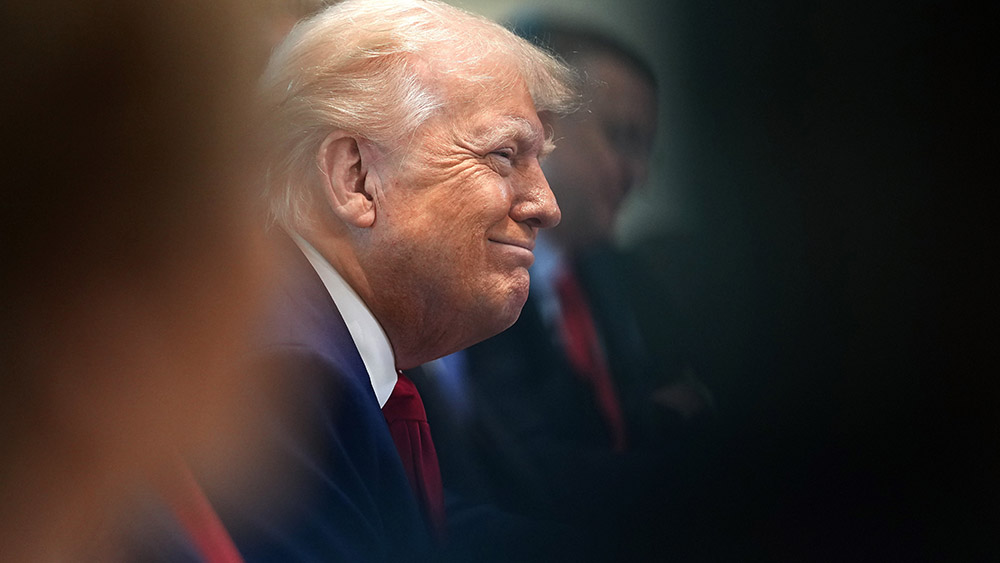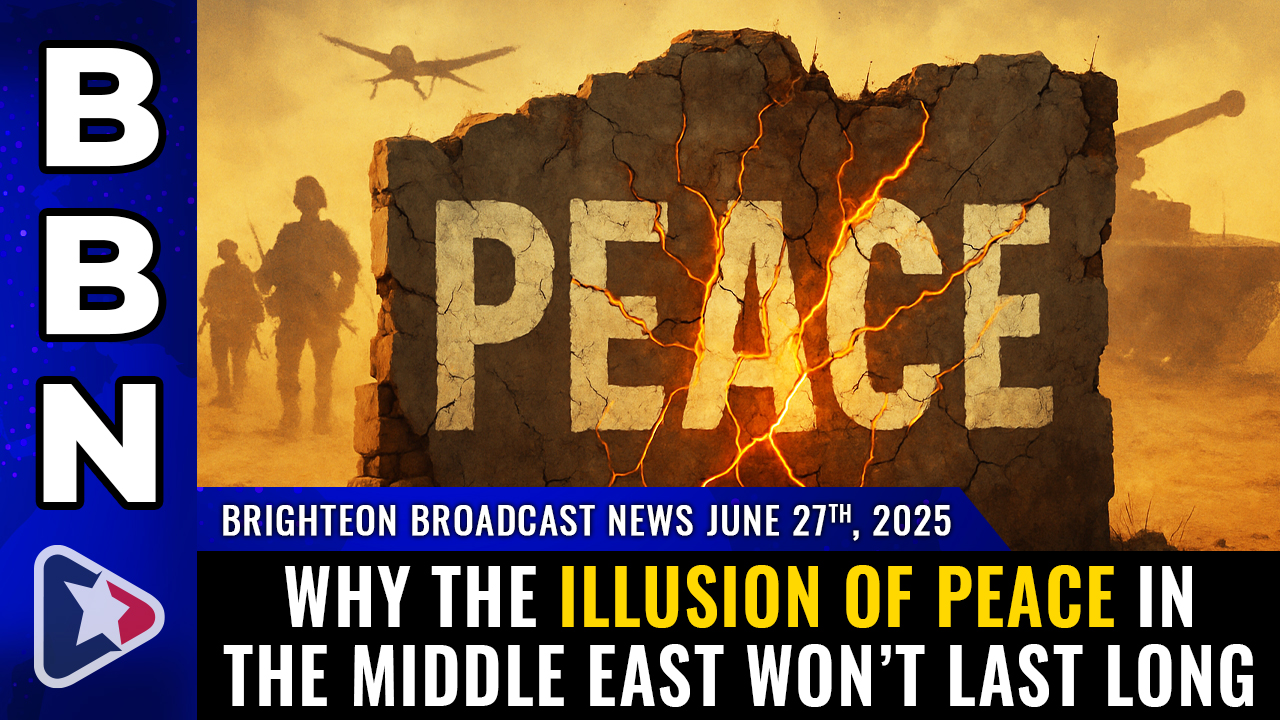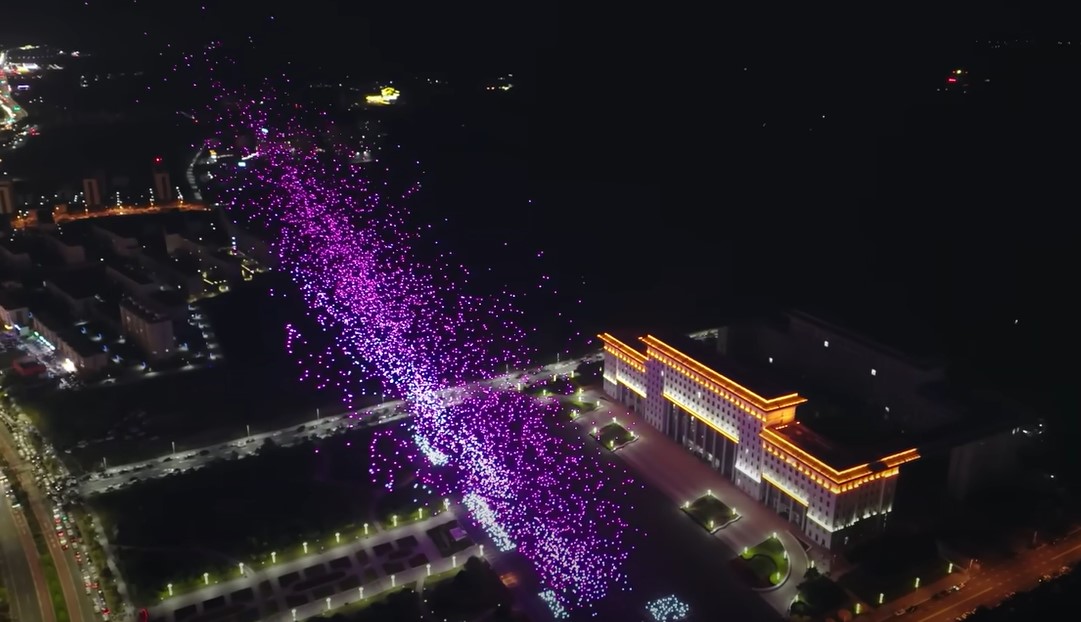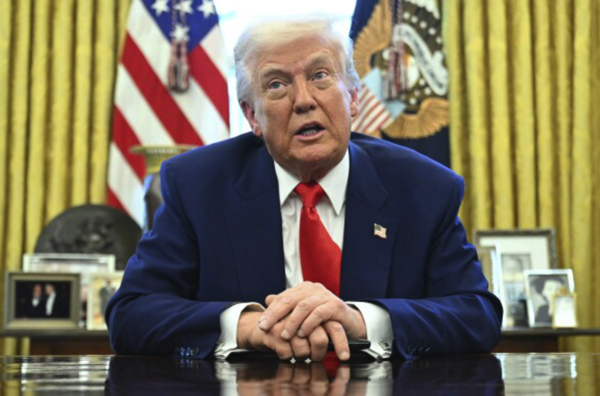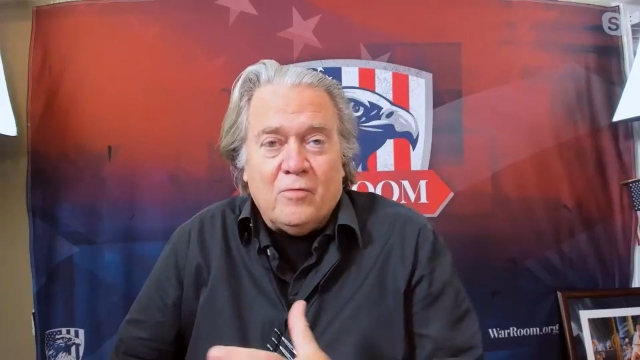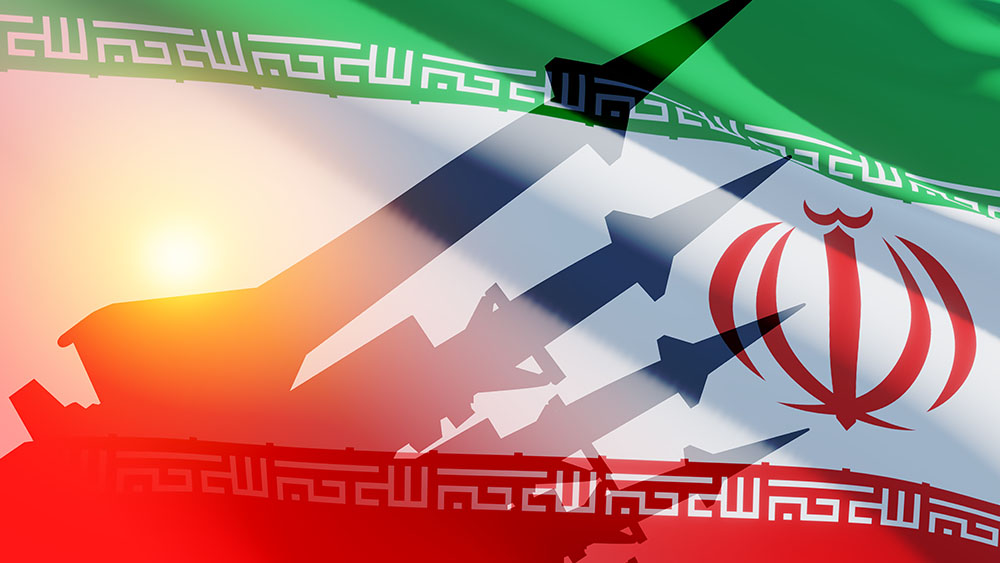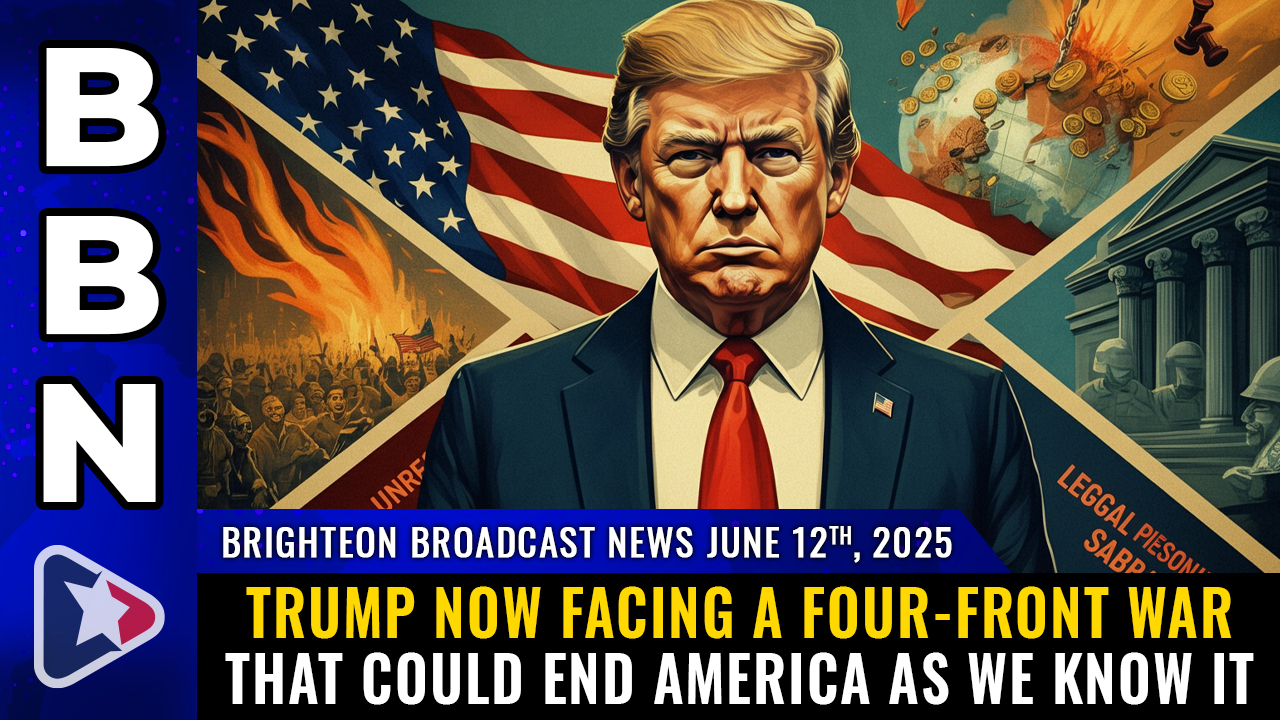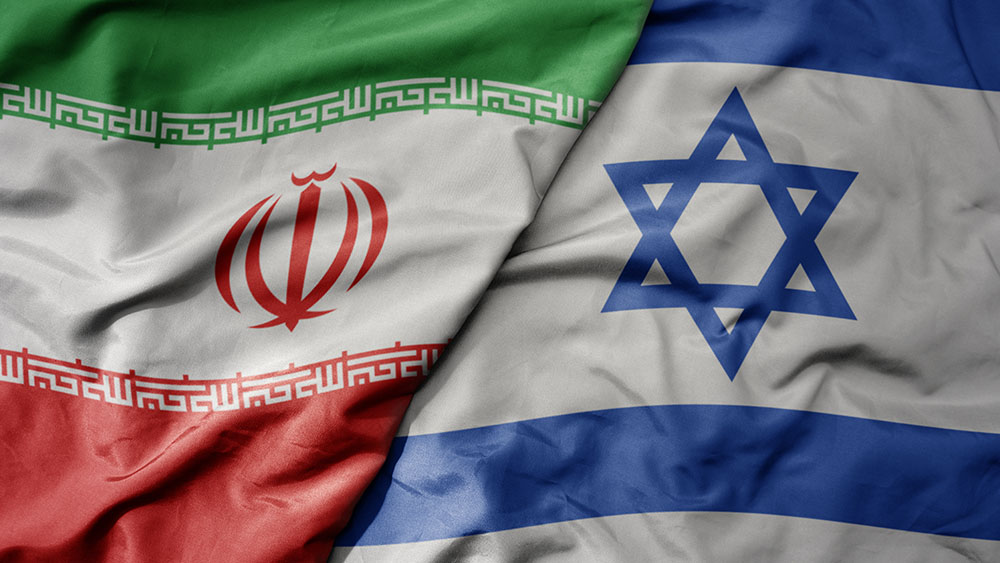World War heating up: Putin condemns US strikes on Iran, vows support for Tehran
06/25/2025 / By Lance D Johnson
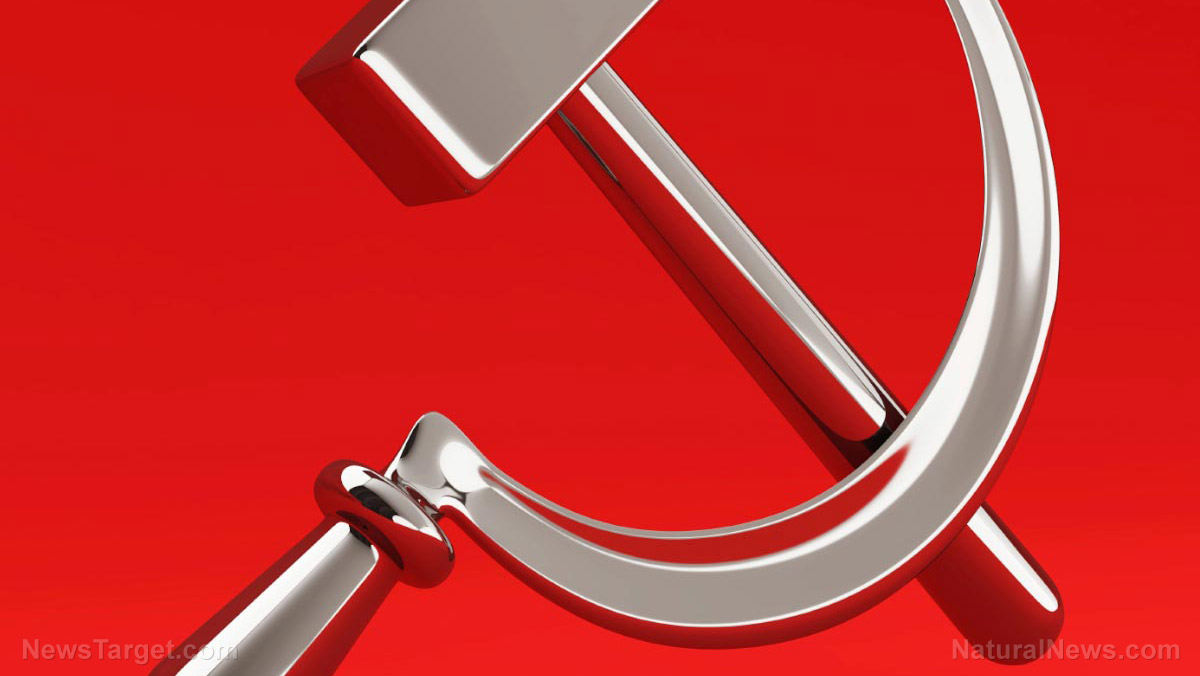
Russian President Vladimir Putin has sharply criticized the U.S. and Israeli airstrikes on Iran’s nuclear facilities, calling the attack “illegitimate and a violation of international law.” The condemnation came during a high-profile meeting with Iranian Foreign Minister Abbas Araghchi at the Kremlin, reinforcing Moscow’s strategic partnership with Tehran.
Key points:
- Russian President Vladimir Putin denounced U.S. airstrikes on Iran as “illegitimate.”
- The Kremlin meeting with Iran’s foreign minister signals a deepening alliance against Western powers.
- Operation Midnight Hammer targeted Fordow, Natanz, and Esfahan with bunker-buster bombs.
- Global condemnation grows as Iran prepares retaliatory strikes on Israel.
- Analysts warn of a new Cold War as Russia and China back Iran.
Operation Midnight Hammer: A reckless escalation
The U.S. military operation, dubbed “Midnight Hammer,” saw B-2 bombers drop GBU-57 bunker-buster bombs on Fordow and Natanz, while submarines launched Tomahawk missiles at Esfahan. Despite claims of success, reports indicate Iran had already relocated enriched uranium, minimizing damage.
Putin’s stance aligns with Russia’s long-standing defense ties with Iran, including advanced air defense systems. “The actions of Israel and the U.S. are illegitimate and violate international norms,” Putin stated, according to RT. Araghchi echoed the sentiment, warning that Iran “reserves all options” for retaliation.
A new Cold War? Russia and Iran vs. the West
The strikes have deepened divisions between Western powers and their adversaries. While NATO chief Mark Rutte praised Trump’s “decisive action,” China and Turkey joined Russia in condemning the attack. The UN Security Council remains deadlocked, with no resolution in sight.
Israeli human rights lawyer Eitay Mack argued, “This is not about nonproliferation—it’s about regime change. And history shows that never ends well.” Critics warn that the conflict could push Iran closer to Russia and China, reshaping global alliances.
Hours after the U.S. attack, Iran launched missile strikes on Israel, hitting Tel Aviv, Haifa, and other cities. Emergency services reported at least 16 casualties, marking the first direct Iranian retaliation. Analysts fear further escalation, with Tehran potentially withdrawing from the Nuclear Non-Proliferation Treaty (NPT).
Putin’s denunciation escalates tensions
Russian President Vladimir Putin’s condemnation of U.S. airstrikes on Iran as “illegitimate” underscores Moscow’s alignment with Tehran, further straining relations with the West amid fears of a broader Middle East war.
Kremlin-Iran alliance strengthens
The high-profile meeting between Putin and Iranian Foreign Minister Abbas Araghchi signals a solidified Russo-Iranian front, with Russia reportedly deploying advanced missile systems to Iran in preparation for potential regional conflict.
Operation Midnight Hammer’s limited impact
Despite the U.S. and Israel’s precision strikes on Fordow, Natanz, and Esfahan using bunker-buster bombs and Tomahawks, intelligence suggests Iran had preemptively relocated enriched uranium, mitigating the operation’s strategic success. This hasn’t stopped the West from bloviating about their military prowess and success.
Global backlash and diplomatic deadlock
The UN Security Council remains paralyzed as Russia, China, and Turkey condemn the strikes, while NATO supports the U.S., deepening global divisions reminiscent of Cold War-era bloc politics.
Iran’s retaliation triggers regional crisis
Iran’s retaliatory missile strikes on Tel Aviv and Haifa, resulting in civilian casualties, mark a dangerous escalation, with analysts warning of further attacks that could overwhelm Israel’s Iron Dome defenses.
U.S. public opposition to military intervention
A Chicago Council poll reveals 56% of Americans oppose deploying troops to defend Israel against Iran, complicating Netanyahu’s calls for a stronger U.S.-Israel alliance amid rising isolationist sentiment.
Putin’s warning of catastrophic consequences
The Russian president cautioned that U.S. military action against Iran risks uncontrollable regional hostilities, as oil prices surge 6% following the strikes, exacerbating global economic instability.
Nuclear non-proliferation treaty at risk
With Iran threatening to withdraw from the NPT, the strikes may backfire, accelerating Tehran’s nuclear ambitions and eroding decades of nonproliferation efforts.
Humanitarian and legal concerns raised
Critics like Israeli lawyer Eitay Mack argue the strikes prioritize regime change over nonproliferation, risking prolonged conflict and humanitarian crises akin to past U.S. interventions in the Middle East.
A fractured global order emerges
As Russia and China bolster Iran, the conflict threatens to reshape alliances, destabilize the Middle East, and trigger a new Cold War, with unpredictable consequences for global security and energy markets. As tensions mount, the world watches nervously—aware that this conflict could redefine power dynamics in an increasingly fractured global order.
Sources include:
Submit a correction >>
Tagged Under:
Abbas Araghchi, alliances, B-2 bombers, diplomacy, geopolitics, global tensions, international law, Iran, JCPOA, Kremlin, Middle East conflict, military escalation, NATO, nuclear facilities, Operation Midnight Hammer, proxy wars, Putin, regime change, retaliation, Russia, sovereignty, Tomahawk missiles, U.S. strikes, United Nations
This article may contain statements that reflect the opinion of the author
RECENT NEWS & ARTICLES
COPYRIGHT © 2019 Dangerous.News
All content posted on this site is protected under Free Speech. Dangerous.News is not responsible for content written by contributing authors. The information on this site is provided for educational and entertainment purposes only. It is not intended as a substitute for professional advice of any kind. Dangerous.News assumes no responsibility for the use or misuse of this material. All trademarks, registered trademarks and service marks mentioned on this site are the property of their respective owners.


